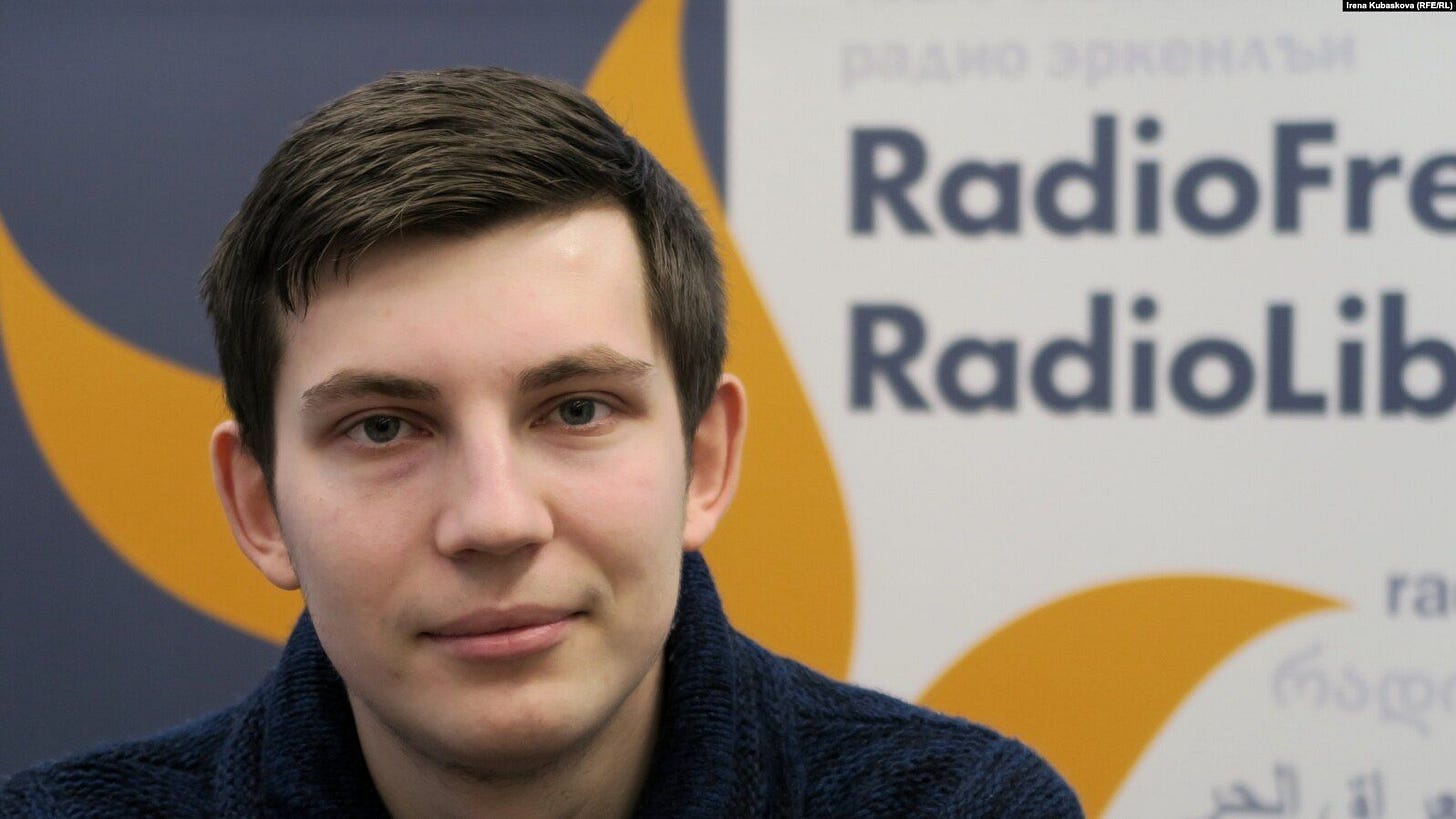Misery in Minsk
In Alexander Lukashenko’s Orwellian world, independent journalism is extremism.
Jeffrey Gedmin's weekly newsletter on politics, culture, and music is made possible by American Purpose's generous members. Join today to receive his newsletter and other great benefits.
“David the Scientist Guy” was the first of Phoebe’s boyfriends in “Friends.” He made his first appearance in season one but then, in short order, leaves Phoebe for a research project in Minsk. Could there be a more obscure place (as Chandler might say)?
That was in 1994, the same year Alexander Grigoryevich Lukashenko became president of Belarus. Since then, the man who rules Belarus has made Minsk famous.
In 2005, U.S. Secretary of State Condoleezza Rice told CNN’s Moscow bureau chief Jill Dougherty that Belarus is “the last remaining true dictatorship in the heart of Europe.” That was a time when popular uprisings were giving hope to millions in places like Georgia and Kyrgyzstan, but Mr. Lukashenko kept the door firmly closed on even the tiniest hints of liberalization. I visited Minsk in summer 2009 as president of Radio Free Europe/Radio Liberty (RFE/RL). I recall sitting with journalists in a restaurant’s private room; private, except for the two KGB men sitting at a table so close I thought they would ask us to pass the salt.
It’s worse now. Since widespread protests in 2020, there have been an estimated forty thousand politically-motivated arrests in Belarus. There are more than 1,500 political prisoners in a country smaller than Kansas with a population akin to that of little Austria. After nearly twenty years in power, Lukashenko is the cruel and dark gift that keeps giving. Most recently, he volunteered to take in Wagner Group head Yevgeny Prigozhin, the merciless mercenary leader who—says a colleague—has as his core fan base the very worst of the prison population across Russia.
I’m in Prague, with Belarus on my mind. I’m starting this weekend as acting president/CEO of RFE/RL. And thanks to the Lukashenko regime, we have three people behind bars.
Ihar Losik, an RFE/RL journalist, was detained in June 2020 in advance of Belarus’ rigged election that summer. One charge against him: “Preparation for participation in riots.” That’s what demonstrations are called in Belarus. That’s what got Ihar fifteen years. He’s not had contact with the outside world for months. When Ihar’s wife Darya appealed publicly for her husband’s release—aka in Belarus an act of “facilitating extremism”—she was sentenced to two years.
Andrey Kuznechyk, a web editor for RFE/RL, was detained on November 25, 2021, while riding his bike near his home in Minsk. He’s been found guilty of “hooliganism” and “participating in an extremist organization” (namely, the one U.S. taxpayers fund and I’ll work for the next few months). Andrey is serving six years in a maximum-security prison.
Ihar, as best we know, is in a hard-labor penal colony near Navapolatsk in northern Belarus. Last summer, the Lukashenko regime added him to the country’s terrorist watch list. In Lukashenko’s Orwellian world, independent journalism is extremism. Belarusians who try to access RFE/RL’s (blocked) website face up to six years in jail.
You can read about another one of the 1,513 imprisoned innocents in an interview published recently in our pages. Maria Kalesnikava is a flautist, conductor, and music teacher who was engaged in human rights advocacy when she was kidnapped by police on September 7, 2020, in Minsk. She’s been charged with treason. Her family has not heard from her in nearly four months.
Musical life is not so easy in Belarus either. Foreign music is discouraged; 75 percent of all FM music broadcasts each day must be Belarusian. We don’t know exactly what kind of music Lukashenko likes. We do have a state media interview from five years ago, however, where young people had the chance to engage with their president, learning that:
The president . . . has no time for music while skiing or playing ice hockey. But he does listen to music while driving a car. . . . The Belarus president’s meeting with young and creative citizens lasted for about four hours and proceeded in an informal and most friendly manner. The young Belarusians asked most versatile questions, taking the opportunity to learn about many things firsthand. Alexander Lukashenko gave substantial and detailed answers to absolutely all the questions.
On “Friends,” they all thought Minsk was in Russia (“David the Scientist Guy included). We should all know where Belarus is by now. And there’s no reason the place be seen as so obscure. There are traces of Belarusian background in Harrison Ford, Gwyneth Paltrow, Kirk Douglas, Larry King, Scarlett Johansson, Wayne Gretzky, Jared Kushner, and, actually, Lisa Kudrow. Kudrow, who played Phoebe on “Friends,” has roots in the small village of Ilya near Minsk. The Jews of Ilya were wiped out during the Holocaust, Kudrow’s paternal great-grandmother included.
There’s a history of rebellion against Russian domination in Ilya that goes back to the 19thcentury. There’s a tireless and noble fight for freedom that goes on across all corners of Belarus today.
Jeffrey Gedmin Jeffrey Gedmin is co-founder and editor-in-chief of American Purpose.
Image: RFE/RL Belarus Service journalist Ihar Losik, currently imprisoned in Belarus. (RFE/RL)


